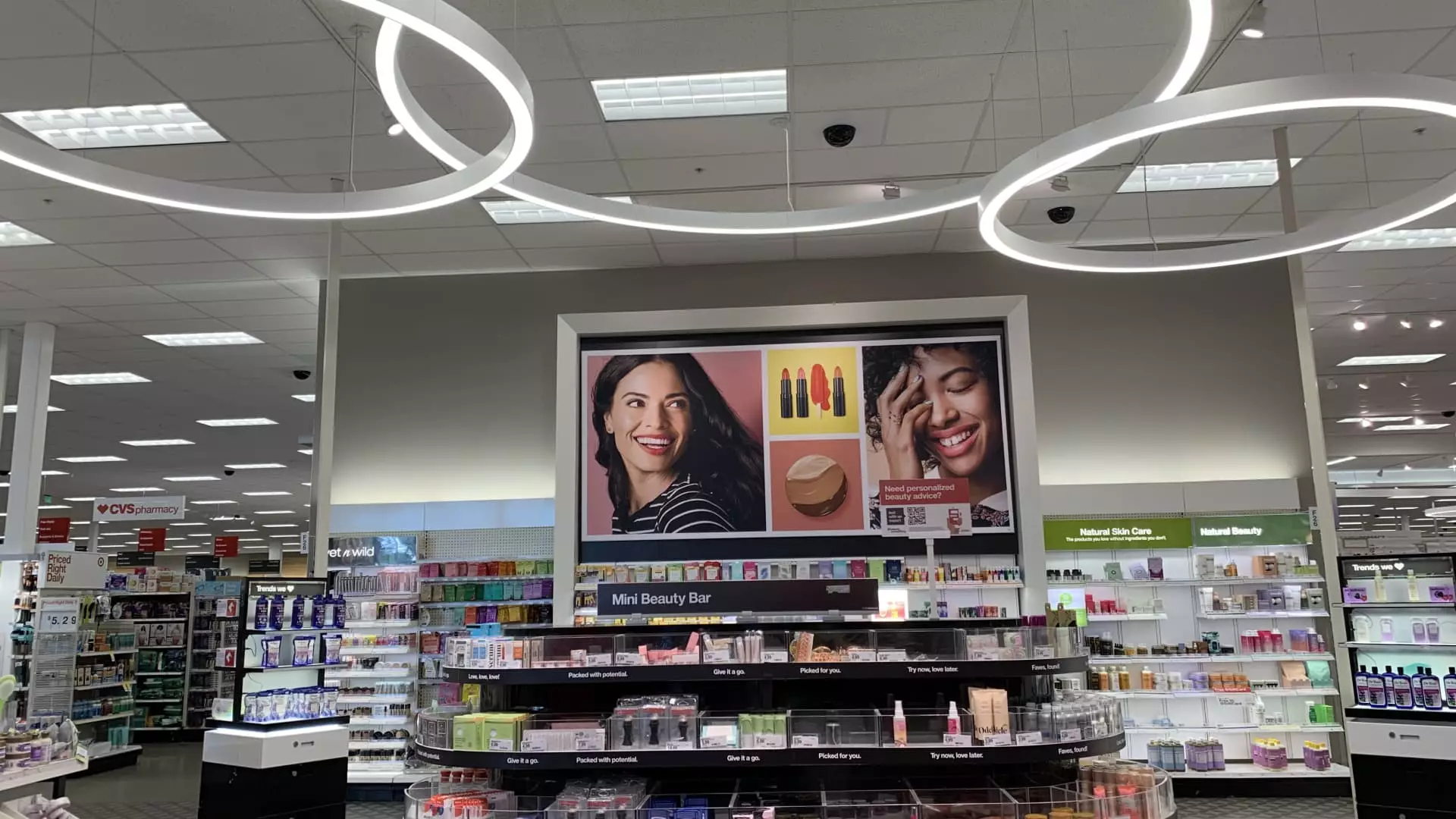The recent announcement that Ulta Beauty and Target are parting ways signals more than just a business restructuring; it underscores a larger failure within the retail sector to adapt to evolving consumer preferences and market expectations. For years, Target’s bold move to integrate Ulta’s stores within its retail ecosystem was a step towards creating an innovative, all-encompassing shopping experience. This was not merely a strategic alliance but an attempt to transform the shopping landscape, blending aspirational beauty brands with the convenience of a mass retailer. The termination of this partnership reveals a troubling disconnect between corporate ambitions and operational realities.
Target’s decision to shutter over 600 Ulta shops was motivated in part by operational challenges—staffing shortages, retail theft, and a chaotic in-store environment. While these issues are valid concerns, they simultaneously highlight a more profound failure: the inability of major retail players to genuinely evolve and meet customer needs amidst mounting pressures. This isn’t just about losing a partnership; it reflects a broader failure to innovate effectively and invest in a customer-centric model that prioritizes quality, experience, and accessibility. The core issue lies in the retail sector’s struggle to balance operational efficiency with experiential or lifestyle-driven shopping, a gap that Ulta and Target could have bridged but ultimately failed to bridge.
Implications for Consumer Choice and Market Diversity
The loss of Ulta from Target shelves diminishes consumer choice, especially at a time when access to high-quality beauty products is increasingly tied to convenience and trust. Ulta’s value proposition—combining a wide product range, expert advice, and in-store experiences—was a rare gem within the mass retail space. Its removal narrows the consumer’s options and risks pushing shoppers toward specialized stores or online marketplaces, often at higher costs or with less personalized service.
This development also underscores a troubling trend—large corporations prioritizing short-term operational metrics over long-term consumer engagement. The closure could signal to competitors that mass-market beauty and experiential retail are too complex or unprofitable to sustain at scale, leading to further stagnation in retail innovation. Moreover, it relays a discouraging message: that retail success is still predominantly driven by instant profits rather than meaningful, lasting relationships with consumers. In an age where brands are expected to promote diversity, inclusivity, and authenticity, the retreat of Ulta from Target’s internal landscape feels like a step backward.
A Reflection of Broader Retail Industry Flaws
This split should also be viewed within the context of existing retail industry flaws—namely, the inability of traditional retail giants to adapt swiftly to digital transformation, staffing shortages, and increased retail theft. Target’s struggles highlight that even well-established companies are not immune to operational failures that can undo strategic partnerships. The company’s declining stock value and stagnant sales reflect a deeper crisis: a retail model that is increasingly out of touch with what modern consumers seek.
Furthermore, Target’s leadership—particularly with the impending departure of CEO Brian Cornell—has to reckon with the consequences of their strategic missteps. Their emphasis on beauty as a growth sector proved somewhat optimistic; yet, their operational challenges overshadowed these ambitions. The emphasis on “value” and “newness” seems hollow in light of logistical shortcomings and inadequate customer experiences. The loss of Ulta is more than a failed partnership; it is symptomatic of the retail sector’s broader crisis—an inability to adapt rapidly and innovate sustainably.
Looking Toward a More Dynamic Retail Future
This closure also opens a conversation about the future of retail—about whether corporate giants can truly pivot toward a more consumer-focused, experience-driven model in an era dominated by e-commerce and instant gratification. Ulta and Target had the potential to lead this charge, blending physical retail with experiential and personalized beauty services. Their failure to do so reveals the need for a fundamental shift in how retailers think about consumer engagement and operational excellence.
While some might see this as a setback, it could serve as a wake-up call for the industry to prioritize agility, authenticity, and customer experience over mere surface-level partnerships. The retail landscape must evolve into a space where innovation is prioritized over profits, and where inclusivity and consumer trust drive long-term success. The discontinuation of this Ulta-Target alliance should inspire other retail players to rethink their strategies—not just to compete but to genuinely serve their communities in a manner that transcends transactional shopping.
This development, though disappointing on the surface, might catalyze the industry to reconsider what it means to deliver value to consumers—a recalibration towards meaningful engagement, genuine diversity, and operational excellence that modern shoppers demand.

